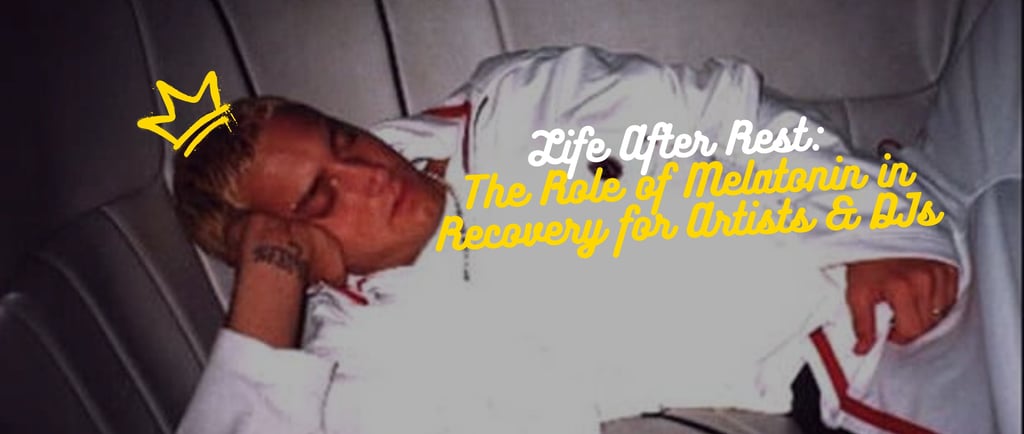Life After Rest: The Role of Melatonin in Recovery for Artists & DJs
Late nights and creative grind don’t mix well with recovery—especially when sleep is sacrificed. In this post, we dive into The Role of Melatonin in Recovery for Artists, exploring how this vital hormone supports physical, mental, and emotional restoration. From DJs and dancers to touring musicians, learn how to naturally support melatonin production and optimize your sleep so your performance never hits snooze.
SLEEPSUPPLEMENTS
dj miss kittie
5/14/20251 min read


The Role of Melatonin in Recovery for Artists
Artists, especially those who perform or work late into the night, often face challenges when it comes to maintaining a healthy sleep cycle. The erratic schedules and high-energy demands of their lifestyle can disrupt their body’s natural rhythms, making it harder to recover effectively. Melatonin, a hormone that regulates sleep, plays a critical role in the recovery process and can be a powerful tool for artists seeking to optimize their health and performance.
What is Melatonin?
Melatonin is a hormone produced by the pineal gland in the brain. It’s often referred to as the "sleep hormone" because its levels rise in response to darkness, signaling to the body that it’s time to rest. Melatonin helps regulate the circadian rhythm—your body’s internal clock—and influences the timing of sleep, wakefulness, and other physiological processes.
For artists, disrupted circadian rhythms caused by late-night performances, irregular travel schedules, and exposure to bright lights can interfere with melatonin production, making it harder to fall asleep and recover.
Why Recovery Matters for Artists
Recovery is essential for:
Physical Repair: Sleep facilitates muscle repair and growth, which is crucial for performers and dancers.
Mental Restoration: Quality sleep supports cognitive functions like memory, focus, and creativity.
Emotional Regulation: Restful sleep helps artists manage stress and maintain emotional balance.
When melatonin production is disrupted, recovery processes can be compromised, leading to fatigue, decreased performance, and an increased risk of burnout.
Ice inflammation, which is essential for recovery from physical exertion or injury.
Conclusion
Melatonin is a vital component of recovery for artists navigating demanding schedules and late-night routines. By understanding its role and taking steps to optimize melatonin production naturally, artists can improve their sleep quality, enhance recovery, and sustain their creative and physical performance. Remember, sleep isn’t just a break—it’s an essential part of your artistry and health.
